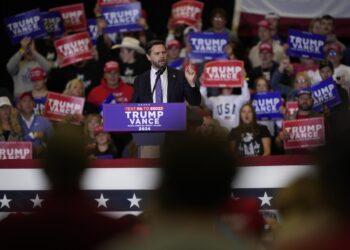,
Indianapolis IN: With law enforcement officers from around the world on hand Feb. 26, the University of Indianapolis and the Law Enforcement and Emergency Services Video Association (LEVA) will open a one-of-a-kind media analysis laboratory, the world's first permanent facility for training criminal investigators in processing and managing large quantities of video evidence.
The partnership is bringing to the university state-of-the-art software and hardware that has exciting applications for a number of academic disciplines, which will enable students to apply classroom learning through video editing, simulations and other hands-on experiences.
With security cameras proliferating, video evidence is becoming increasingly important in criminal investigations, and the data analysis more sophisticated. The new Digital Multimedia Evidence Processing Lab at UIndy is designed to function as an international training site, and could be made available as an investigative center for video analysis during times of crisis such as a 9/11-type national emergency.
No other facility in the world has a similar capability for processing and managing massive quantities of video data, or for training up to 38 investigators simultaneously. Among other uses, the lab will provide training for personnel from four new regional forensic video labs being established by the International Association of Chiefs of Police through a grant from the Office of Community Oriented Policing Services in the U.S. Department of Justice.
The establishment of a permanent training facility at UIndy developed out of a long-standing relationship between LEVA and Thomas Christenberry, director of public safety education at the university. Christenberry was the chief of media and technology for the FBI Academy in Quantico, Va., responsible for training special agents and law enforcement personnel, before his move to academe. Since October 2004, UIndy has been the host for LEVA's courses in Forensic Video Analysis and the Law, training law enforcement personnel from around the United States and abroad.
“LEVA focuses on helping investigators master the video technology that can help them solve cases,” said Jan Garvin, forensic video training vice president for the association. “We stress the value of agencies integrating forensic video analysis into their investigative arsenals. The university's cooperation, enthusiasm and commitment to this project already have resulted in a tremendous impact to the global law enforcement community.”
LEVA's lead instructor, Grant Fredericks, considered the premier expert on video analysis in the country, noted, “There are more than 12 million video surveillance systems operating in the U.S. today. Video clearly is the most prolific evidence collection resource available to law enforcement. In fact, acquisition of video evidence has been listed as a priority by the federal government in the event of a terrorist attack.”
Technology already is proving to be indispensable in many of the investigations related to the war on terror, Fredericks said. “In the case of video evidence, thanks to better technology and training, the process of sifting through hours of surveillance footage is far less overwhelming and far more effective for investigators.”
The lab at UIndy will see immediate use. Directly following the ribbon-cutting ceremony at 10 a.m. Feb. 26, it officially will be open for business. More than 70 investigators from the U.S., Canada, Greece and the United Kingdom will begin a week-long training program. One of those attending is seeking to establish a similar centralized training facility in the U.K.
The University of Indianapolis is a top-tier, independent, comprehensive institution of higher education with more than 4,300 students on its main campus. Strong undergraduate, master's and doctoral programs, especially in business, education, communication and the nationally ranked health sciences, draw students from around the globe to the Indianapolis campus and the university's wholly owned branch in Athens, Greece.









